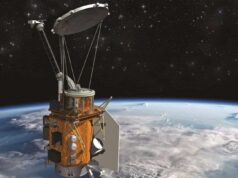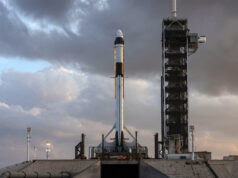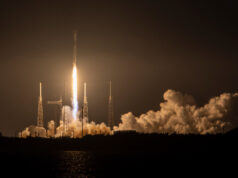
On November 21st, 2024, a Russian Progress cargo spacecraft, packed with essential supplies for the International Space Station (ISS), embarked on its journey from the Baikonur Cosmodrome in Kazakhstan. The spacecraft successfully docked at the Russian Poisk module on November 23rd, but the mission took an unexpected turn when the cosmonauts onboard were met with a foul odor upon opening the hatch. This peculiar incident has raised concerns and prompted investigations into the cause of the smell and its potential impact on the crew and the station.
This isn’t the first time an unusual smell has been detected on the ISS. In the past, astronauts have reported smelling something akin to “burnt plastic” or “antifreeze.” These odors are often attributed to routine off-gassing from materials within the station, a phenomenon that occurs as components release volatile organic compounds in the unique environment of space. However, the recent incident with the Progress spacecraft stands out due to the described intensity of the odor and the reported presence of small droplets, suggesting a potential leak of some kind.
What is the source of the smell?
While NASA has not officially disclosed the nature of the odor, Russian space news outlet Russianspaceweb.com reported that the cosmonauts described it as “toxic.” This description, coupled with the visible droplets, has led to speculation about a possible coolant leak. Coolants are used to regulate temperatures in spacecraft systems, and some types can be harmful if inhaled or come into contact with skin.
What are the potential risks?
The primary concern is the health and safety of the crew. Exposure to certain chemicals can cause a range of adverse effects, from mild irritation to serious health problems. Additionally, leaks in spacecraft systems can disrupt critical operations and potentially jeopardize the integrity of the station.
What measures have been taken?
Following the discovery of the odor, the cosmonauts immediately sealed the hatch to the Poisk module, isolating it from the rest of the ISS. NASA and Roscosmos, the Russian space agency, initiated air quality monitoring throughout the station using specialized sensors. After 24 hours of continuous monitoring, the air quality was deemed normal, indicating that the odor was contained within the Poisk module.
What are the next steps?
The crew is currently working to safely open the hatch and investigate the source of the odor. This will likely involve wearing protective gear and using specialized equipment to analyze the air and any leaked substances. Once the cause is identified, appropriate measures will be taken to mitigate the issue and ensure the safety of the crew and the station.
Past Incidents and Lessons Learned
The ISS has a history of encountering unexpected issues, including leaks and equipment malfunctions. In 2004, a smoke alarm was triggered in the Zvezda service module, prompting an emergency response. The incident was later attributed to a leak in an oxygen generator. Similarly, in 2019, a small air leak was detected in the Russian segment of the station, requiring ongoing monitoring and repair efforts.
These incidents highlight the challenges of maintaining a habitable environment in the harsh conditions of space. They also underscore the importance of robust safety protocols, continuous monitoring, and international collaboration in addressing unforeseen problems.
The Importance of International Collaboration
The International Space Station is a testament to the power of international cooperation in space exploration. The recent incident with the Progress spacecraft has once again demonstrated the importance of collaboration between NASA and Roscosmos in ensuring the safety and success of the ISS mission. Despite geopolitical tensions on Earth, the commitment to scientific discovery and human spaceflight continues to unite nations in this remarkable endeavor.
Looking Ahead
As the investigation into the mysterious odor continues, the world watches with anticipation. The incident serves as a reminder of the inherent risks associated with space travel and the ongoing challenges of maintaining a human presence in orbit. However, it also showcases the resilience and ingenuity of the astronauts and the ground teams who work tirelessly to overcome obstacles and push the boundaries of human exploration.
My Perspective
Having followed space exploration for many years, I’m always fascinated by the challenges and triumphs of human spaceflight. This incident, while concerning, is a reminder of the complexities of living and working in space. It’s a testament to the adaptability and problem-solving skills of the astronauts and the dedication of the teams on the ground who support them. I’m confident that they will identify the source of the odor and take the necessary steps to ensure the continued safety and success of the ISS mission.
The recent incident involving an unusual odor emanating from a Russian spacecraft docked to the ISS has captured the attention of the world. While the exact cause remains under investigation, the prompt response of the crew and the ongoing air quality monitoring have helped to contain the situation and ensure the safety of the station. This incident serves as a reminder of the challenges and complexities of human spaceflight and the importance of international collaboration in overcoming obstacles and advancing our understanding of the universe.










